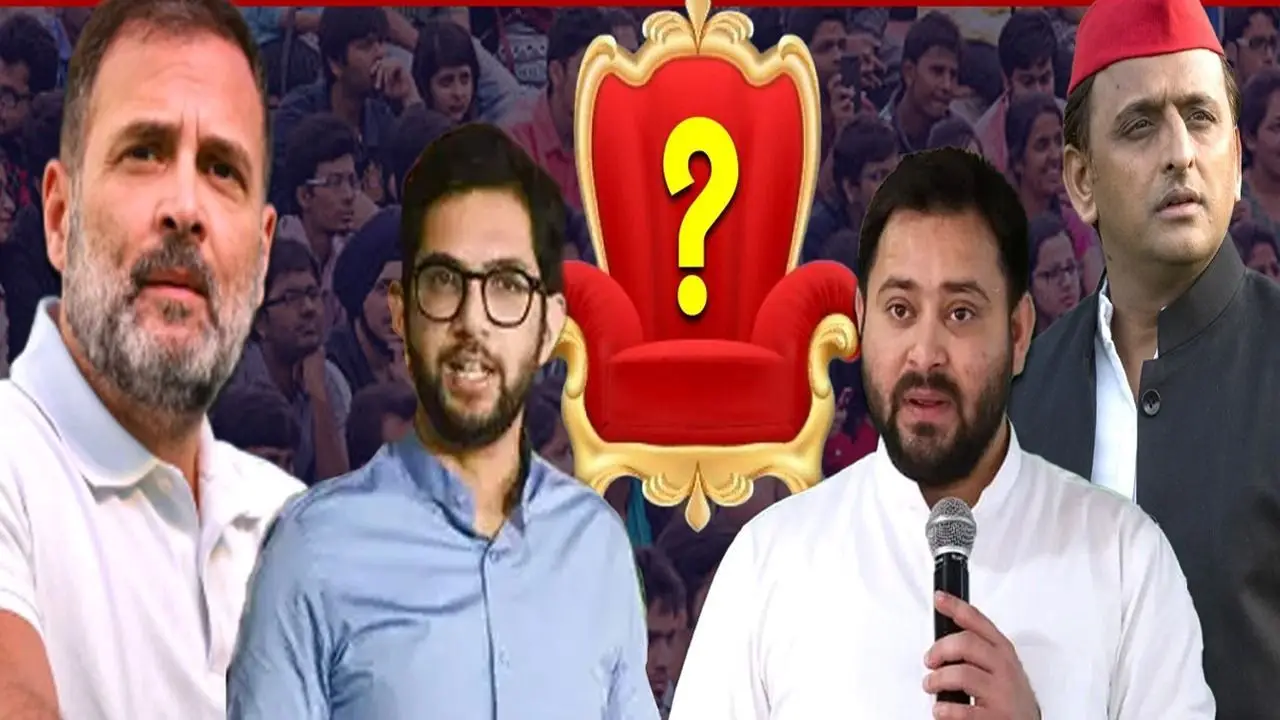
Pol leaders (File)
New Delhi. Dynastic politics has long been a hallmark of Indian democracy. But in today's era, it's being seriously challenged by a new force—public aspiration. From the Congress to the Samajwadi Party, and from Shiv Sena to Akali Dal, every major political family is seeing its next generation locked in a silent battle for relevance. But the real question isn’t just about succession. It’s whether these successors can live up to the expectations of the people—and truly earn the public mandate.
Leadership in the Congress party has always been a two-face conversation. Rahul Gandhi is considered the natural heir to the party's top post, but Priyanka Gandhi’s style, public connect, and resemblance to Indira Gandhi have revived debates inside the party. Her speeches, crowd connect, and clear messaging have stirred new conversations within Congress circles.
Rahul may have spearheaded campaigns like the 'Bharat Jodo Yatra', but organizational outcomes remain underwhelming. The question remains—will the Congress play the Priyanka card now, or stick with traditional succession?
Akhilesh Yadav may have taken firm control of the Samajwadi Party, but internal rifts have constantly weakened his standing. Strained ties with senior family members like Shivpal and Ram Gopal Yadav highlight trust issues within. Being out of power in UP adds pressure to reform and revive. Meanwhile, Tejashwi Yadav of RJD has grown in stature, but there’s still skepticism about whether he can command full trust from the party’s old guard. The shadow of Lalu Prasad still looms large—and Tejashwi must break through it.
In Maharashtra, Uddhav and Aaditya Thackeray must rebuild a divided Shiv Sena, post the Eknath Shinde rebellion. Aaditya’s urban appeal still doesn’t translate across rural Maharashtra. Uddhav too faces the challenge of re-inspiring the rank and file with Bal Thackeray’s firebrand clarity. In Punjab, Sukhbir Badal struggles to match his father Parkash Singh Badal’s legacy. With the Shiromani Akali Dal losing grip on its core base, whispers inside suggest a search for leadership beyond the Badal family may already be underway.
The BJP brands itself as anti-dynasty, yet the party too is quietly preparing for life beyond PM Modi. Two names stand out—Yogi Adityanath and Amit Shah. Yogi’s soaring popularity, especially in northern India, is creating a mass-leader image beyond BJP’s traditional boundaries. Shah, on the other hand, is the architect of BJP’s electoral machinery—his grip on strategy, policy, and execution makes him a formidable contender. While BJP keeps this quiet publicly, internal deliberations suggest a well-calculated plan for future leadership is in motion.
Post-2024, Indian politics has witnessed a shift. Voters no longer rely on family legacies or surnames. It’s no longer about who you are, but what you deliver. Today’s youth wants leaders, not crown princes—decision-makers, not dynasts. The days of unquestioned inheritance are over. Elections are no longer coronations—they are tests of merit and legitimacy. In the age of social media, every misstep is exposed, every promise recorded.Blind loyalty is fading. The voter now questions, evaluates, and decides. The battlefield of politics is no longer for power, but for credibility. Ultimately, the crown won’t go to the loudest name, but to the one who earns it. The fight is no longer for the throne, but for trust.





Copyright © 2026 Top Indian News
